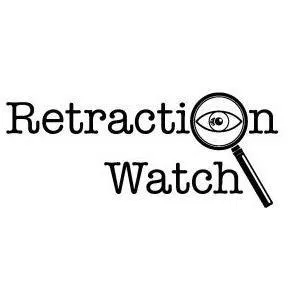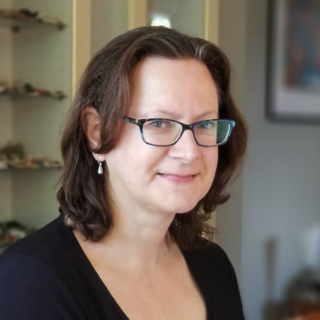Related Research Articles
Scientific misconduct is the violation of the standard codes of scholarly conduct and ethical behavior in the publication of professional scientific research. It is violation of scientific integrity: violation of the scientific method and of research ethics in science, including in the design, conduct, and reporting of research.
In academic publishing, a retraction is a mechanism by which a published paper in an academic journal is flagged for being seriously flawed to the extent that their results and conclusions can no longer be relied upon. Retracted articles are not removed from the published literature but marked as retracted. In some cases it may be necessary to remove an article from publication, such as when the article is clearly defamatory, violates personal privacy, is the subject of a court order, or might pose a serious health risk to the general public.
Gideon Koren, FACMT, FRCP(C) is an Israeli-Canadian pediatrician, clinical pharmacologist, toxicologist, and a composer of Israeli folk music. He was a doctor at the Hospital for Sick Children and a professor at the University of Toronto. In 1985, Koren founded the Motherisk Program in Toronto, which was later shut down amid controversy. Furthermore, multiple scientific papers authored by Koren have been subject to concerns regarding academic and research misconduct, leading to the retraction of six research articles and editorial expression of concerns on multiple others. Koren currently has relinquished his licence to practice medicine due to an ongoing investigation into whether he committed “professional misconduct or was incompetent” while he was in charge of the Hospital for Sick Children’s Motherisk laboratory.
Carlo Maria Croce is an Italian-American professor of medicine at Ohio State University, specializing in oncology and the molecular mechanisms underlying cancer. Croce and his research have attracted public attention because of multiple allegations of scientific misconduct.
Joachim Boldt is a German anesthesiologist who fabricated or falsified data, including those reporting clinical trial results.
Scientific Reports is a peer-reviewed open-access scientific mega journal published by Nature Portfolio, covering all areas of the natural sciences. The journal was established in 2011. The journal states that their aim is to assess solely the scientific validity of a submitted paper, rather than its perceived importance, significance, or impact.
Diederik Alexander Stapel is a Dutch former professor of social psychology at Tilburg University. In 2011 Tilburg University suspended Stapel for fabricating and manipulating data for his research publications. This scientific misconduct took place over a number of years and affected dozens of his publications. By 2015, fifty-eight of Stapel's publications had been retracted. He has been described in coverage by the New York Times as "the biggest con man in academic science".

Retraction Watch is a blog that reports on retractions of scientific papers and on related topics. The blog was launched in August 2010 and is produced by science writers Ivan Oransky and Adam Marcus. Its parent organization is the Center for Scientific Integrity, a US 501(c)(3) nonprofit organization.
Dipak Kumar Das was the director of the Cardiovascular Research Center at the University of Connecticut Health Center in Farmington and is known for research fraud. His work centered on the beneficial properties of resveratrol, which is found in red wine, but over twenty of his research papers have been since retracted.
Silvia Bulfone-Paus is an Italian immunologist. She is the chair of the Research Center Borstel's Department of Immunology and Cell Biology and also serves as professor of Immunobiology at the University of Manchester School of Medicine.
Frontiers Media SA is a publisher of peer-reviewed, open access, scientific journals currently active in science, technology, and medicine. It was founded in 2007 by Kamila and Henry Markram. Frontiers is based in Lausanne, Switzerland, with offices in the United Kingdom, Spain, and China. In 2022, Frontiers employed more than 1,400 people, across 14 countries. All Frontiers journals are published under a Creative Commons Attribution License.
Yoshitaka Fujii is a Japanese researcher in anesthesiology, who in 2012 was found to have fabricated data in at least 219 scientific papers, of which 183 have been retracted.
Clare Francis is a pseudonym used since 2010 by the author of hundreds of whistle-blowing emails sent to the editors of scientific journals that call attention to suspected cases of plagiarism and fabricated or duplicated figures. Described as a scientific gadfly, the pseudonymous Francis is "a source both legendary and loathed in biomedical circles" for their "uncanny knack for seeing improperly altered images, as well as smaller flaws that some editors are inclined to ignore." Francis refers to themself as an "attentive reader"; their "real identity, gender, and occupation remain secret."
Bharat B. Aggarwal is an Indian-American biochemist. His research has been in the areas of cytokines, the role of inflammation in cancer, and the anti-cancer effects of spices and herbs, particularly curcumin. He was a professor in the Department of Clinical Immunology, Bioimmunotherapy, and Experimental Therapeutics at University of Texas MD Anderson Cancer Center in Houston, Texas.
Annarosa Leri is a medical doctor and former associate professor at Harvard University. Along with former professor Piero Anversa, Leri was engaged in biomedical research at Brigham and Women’s Hospital in Boston, an affiliate of Harvard Medical School. Since at least 2003 Anversa and Leri had investigated the ability of the heart to regenerate damaged cells using cardiac stem cells.

Elisabeth Margaretha Harbers-Bik is a Dutch microbiologist and scientific integrity consultant. Bik is known for her work detecting photo manipulation in scientific publications, and identifying over 4,000 potential cases of improper research conduct, including 400 research papers published by authors in China from a research paper mill company. Bik is the founder of Microbiome Digest, a blog with daily updates on microbiome research, and the Science Integrity Digest blog.
Jonathan Neal Pruitt is a former academic researcher. He was an Associate Professor of behavioral ecology and Canada 150 Research Chair in Biological Dystopias at McMaster University. Pruitt's research focused primarily on animal personalities and the social behavior of spiders and other organisms.
The Indian Journal of Medical Ethics is a quarterly peer-reviewed academic journal covering medical ethics and bioethics. It was established in 1993 by the Forum for Medical Ethics Society, an activist group campaigning to reform the Maharashtra Medical Council. The journal was originally entitled Medical Ethics, and its first issue was published in August 1993. It obtained its current title in January 2004. The editor-in-chief is Amar Jesani. The online version of the journal is open-access, the printed version is subscription-based; there are no article processing charges.
Abida Sophie Jamal is a Canadian endocrinologist and former osteoporosis researcher who was at the centre of a scientific misconduct case in the mid-to-late 2010s. Jamal published a high-profile paper suggesting that the heart medication nitroglycerin was a treatment for osteoporosis, and was later demonstrated to have misrepresented her results. She received a lifetime ban from receiving funding from the Canadian Institutes of Health Research and was named directly in their disclosure report, becoming the first person mentioned by name by the institute for scientific misconduct. Jamal was later stripped of her medical license for two years, regaining it in a controversial 3–2 decision.
References
- ↑ Belluz, Julia (December 20, 2014). "Science journals screw up hundreds of times each year. This guy keeps track of every mistake". Vox.
- 1 2 Carey, Benedict (June 15, 2015). "Science, Now Under Scrutiny Itself". The New York Times. Archived from the original on 17 June 2015. Retrieved 3 September 2023.
- ↑ Yang, Yuan; Zhang, Archie (June 18, 2017). "China launches crackdown on academic fraud". Financial Times.
- ↑ Marcus, Amy Dockser (December 15, 2022). "Stanford President's Research Draws Concern From Scientific Journals". The Wall Street Journal.
- ↑ Jack, Andrew (July 31, 2023). "'Open science' advocates warn of widespread academic fraud". Financial Times.
- ↑ "Straddling medicine and journalism, a former resident keeps an eye on the science press". Yale Medicine Magazine. 2014.
- ↑ "Research integrity in the COVID-19 era: Insights from Retraction Watch co-founder Ivan Oransky". thepublicationplan.com. 17 March 2021.
- ↑ "Staff Profile : Ivan Oransky". the-scientist.com. Retrieved September 3, 2023.
- ↑ "About Ivan Oransky". Retraction Watch. Retrieved September 2, 2023.
- ↑ "Ivan Oransky, MD". Harvard School of Public Health. Retrieved September 2, 2023.
- ↑ "AMWA Award_Recipients". American Medical Writers Association. Retrieved September 2, 2023.
- ↑ Marcus, Adam; Oransky, Ivan (21 December 2011). "The paper is not sacred". Nature. 480: 449–450.
{{cite journal}}: CS1 maint: date and year (link) - ↑ Ferguson, Cat; Marcus, Adam; Oransky, Ivan (26 November 2014). "The peer-review scam". Nature. 515: 480–482.
{{cite journal}}: CS1 maint: date and year (link) - ↑ Ivan Oransky at TED
- ↑ Marcus, Adam; Oransky, Ivan (14 February 2018). "Meet the 'data thugs' out to expose shoddy and questionable research". Science.
- ↑ Oransky, Ivan; Marcus, Adam (August 1, 2023). "Science Corrects Itself, Right? A Scandal at Stanford Says It Doesn't". Scientific American.
- ↑ Oransky, Ivan; Marcus, Adam (August 9, 2023). "There's far more scientific fraud than anyone wants to admit". The Guardian.